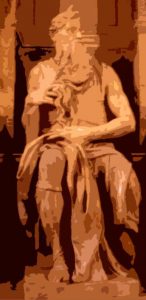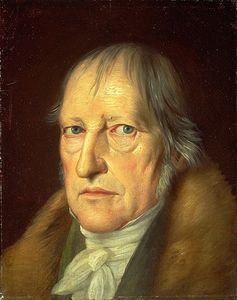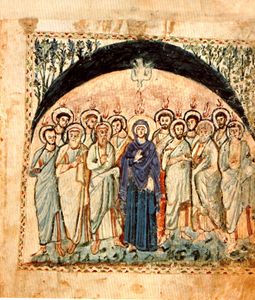In recent politics, the word “transactional” has been used a lot. Transactional politics are rootless politics where everything is governed by the self-interest of the moment. The opposite of transactionism are politics governed by policies and relationships by contracts. Transactional politics atomize relationships into moments of transaction. Non-transactional politics seek continuity and predictability.
If we apply this to the study of religion, especially to the relationship between a human being and her god, we can perhaps understand the fundamental difference between magic and religion. Let us say all religion is driven by human interest in self-preservation. We project an image onto the screen of heaven (or other locations of divine presence) that is either transactional or non-transactional, depending on whether we believe that the powers on the other side, on whose benevolence we depend, relate to us in a transactional or a non-transactional way. Are they seeking momentary advantages and can they be bribed by gifts (sacrifice) or are they interest in a long-term relationship? Self-interested powers that can be bribed provide the basis for all magic. Relationships between us and such powers are atomistic, occasional, as needed. The veneration of saints, the conjuring of spirits, and other manifestations of shamanism are purely transactional.
In contrast, gods interested in relationships are profoundly political. They aim at the endurance of a family, a city, a dynasty, a state, or an empire, but in any case, their goal is for a collective entity to succeed, to attain an enduring earthly existence. Non-transactional religions usually condemn and repress shamanism, namely, when they perceive transactionalism (do ut des) as an insult to the majesty and purpose of deity, a purpose these order-seeking religions want to make pervasive. Hence the repression of paganism.
This is not to say that all political religions are necessarily ethical or non-transactional in character. Some are fully blown systems of repression, forcing subjects (subdued collectives, conquered populations) into submission and imposing fear even when they employ the language of love and loyalty. The Assyrians were like that. Their chief god Asshur was like that. He acted out of self-interest. He was transactional. He did not last.
Biblical covenantalism initially employs summo-deism (“no other gods before me”) and later absolute exclusivism (“I am He, there is no Other”) to establish the collective identity of “Israel” as a covenanted nation. The prophetic campaign against Baalism is not just about idolatry (no images) but also about exclusivity and hence about identity established by ritual action. (You shall not act that way.) The purpose of biblical religion, if one can speak in such anachronistic and generalizing terms (the people described in biblical literature for the most part had no “Bible”), is ultimately about the correlation between the God of Israel and Israel, two ideal entities whose boundaries are constantly negotiated and modified in light of changing realities. But there would be no mutual responsiveness between Israel and the God of Israel if the relationship between God and nation were merely transactional. The predictability of the downfall of the nation depends on the predictability of the nation’s God. The relationship is casuistic: blessing follows obedience to the laws (not sentimental piety but persistent lawfulness of society is at stake here); curses threaten increasingly severe failures of society. (See Deuteronomy 27-28)
Where does the individual come into play? Is personal prayer inevitably transactional? I am reminded of the collective confession of sin in the scripted prayers for the Day of Atonement. It is we who have sinned (not I), and the purpose is not just to seek forgiveness and life for the individual (which is certainly implied in the myth of God’s opening books to inscribe each individual and fix their fate for the next year; a “memento mori”) but to indemnify both ourselves (from futile vows; Kol Nidre) but ultimately to accept God’s sovereignty over the world (creation and kingship are the themes of New Year/Rosh Hashanah), life and death of individuals (Yom Kippur), and the thriving of the community (Sukkoth). All this culminates in a celebration of the Torah (Simchat Torah). The covenant is fixed in a book that assures us that the relationship between Israel and the God of Israel is not transactional but affirmed forever.
Chag sameach!






